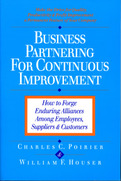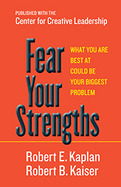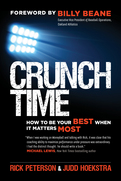If you want to make the drive for quality, productivity, and profit improvement a permanent feature of your organization, the concept of "partnering"-building alliances among employees, suppliers, and customers-must become an integral part of every activity, write Charles Poirier and William Houser. Every employee must see every other employee as a partner instead of a competitor. Similarly, every supplier and customer must be recognized as a potential ally for improvement, not just a source of goods or income. Poirier and Houser give detailed action studies of companies that have made the transition, and provide the tools to make similar changes in your own organization.
- A highly visual presentation that enables readers to see organizational dimensions in a whole new way
Shows that sustainability, a concept usually associated exclusively with environmentalism, is the key to a truly fulfilling personal life
Filled with practical advice as well as thoughtful reflections
Illustrated with stories of Schuler's own efforts not always successful to live a sustainable life, as well as insights from science, literature, and a range of spiritual traditions
So many of us are beset by anxiety, depression, loneliness, and spiritual malaise, tense and unhappy despite our gadgets and goodies. Michael Schuler, leader of the nation's largest Unitarian Universalist congregation, says it's because, urged on by an aggressively materialist culture, we too often opt for short-term gratification and long-term denial. In this thoughtful and deeply honest book, he helps us find a life path that leads to treasures of perennial value: a beautiful and healthy earth home, enduring relationships, strong communities, work that contributes to the common good, and play that restores our bodies and lifts our souls.
Deconstructing the assumption that consumption, stimulation, and constant motion comprise the good life, Schuler urges the wholesale embrace of sustainability as both an operational principle and a life-sustaining core value. His book presents sustainability as a coherent frame of reference that can ground us spiritually, heal us internally, and deepen our relationships. Schuler identifies four behavioral principles for living sustainably Pay Attention, Stay Put, Exercise Patience, and Practice Prudence and shows how to apply them in our daily lives. He uses stories from his own life to illuminate the rewards and challenges of sustainable living and shares insights from environmentalists, social commentators, writers, poets, businesspeople, and spiritual leaders.
Sustainability means more than mere survival for individuals, just as for natural and social systems, it's the key to thriving rather than burning out. For those seeking a more profoundly satisfying way of life, Schuler's heartfelt explorations offer a counter intuitive answer: the sustainable life is the good life.
- This product page is for the original 2003 hardcover bestseller. Please also see The New Confessions of an Economic Hit Man , published in January 2015
- Find out more about this important book and the worldwide movement it has spawned at www.economichitman.com
- A New York Times bestseller!
- Read what people are saying about this book and join the conversation--visit our Confessions blog today
- Read a transcript of John Perkins' recent interview with Amy Goodman on Democracy Now!
- Read David Korten's review on www.dragonflymedia.com
- An extraordinary, real-life tale of international intrigue and corruption
- Reveals the hidden mechanics of imperial control behind such major international events as the fall of the Shah, the death of Panamanian president Omar Torrijos, and the invasions of Panama and Iraq, as well as providing an inside view of the corrupt U.S.-Saudi Arabian relationship
- One man's personal journey from eager servant of empire to impassioned advocate for the rights of oppressed people
In his controversial book, John Perkins tells the gripping tale of the years he spent working for an international consulting firm where his job was to convince underdeveloped countries to accept enormous loans, much bigger than they really needed, for infrastructure development--and to make sure that the development projects were contracted to U. S. multinationals. Once these countries were saddled with huge debts, the American government and the international aid agencies allied with it were able, by dictating repayment terms, to essentially control their economies. It was not unlike the way a loan shark operates--and Perkins and his colleagues didn't shun this kind of unsavory association. They referred to themselves as "economic hit men."
This is a story of international political intrigue at the highest levels. For over a decade Perkins traveled all over the world--Indonesia, Panama, Ecuador, Columbia, Saudi Arabia, Iran--and worked with men like Panamanian president Omar Torrijos, who became a personal friend. He helped implement a secret scheme that funneled billions of Saudi petrodollars back into the U. S. economy, and that further cemented the intimate relationship between the Islamic fundamentalist House of Saud and a succession of American administrations. Perkins' story illuminates just how far economic hit men were willing to go, and unveils the real causes of some of the most dramatic developments in recent history, such as the fall of the Shah of Iran and the invasions of Panama and Iraq. Confessions of an Economic Hit Man, which many people urged Perkins not to write, is a blistering attack on a little-known phenomenon that has had dire consequences for both the lesser-developed countries and for American democracy.
- This product page is for the original 2003 hardcover bestseller. Please also see The New Confessions of an Economic Hit Man , published in January 2015
- Find out more about this important book and the worldwide movement it has spawned at www.economichitman.com
- A New York Times bestseller!
- Read what people are saying about this book and join the conversation--visit our Confessions blog today
- Read a transcript of John Perkins' recent interview with Amy Goodman on Democracy Now!
- Read David Korten's review on www.dragonflymedia.com
- An extraordinary, real-life tale of international intrigue and corruption
- Reveals the hidden mechanics of imperial control behind such major international events as the fall of the Shah, the death of Panamanian president Omar Torrijos, and the invasions of Panama and Iraq, as well as providing an inside view of the corrupt U.S.-Saudi Arabian relationship
- One man's personal journey from eager servant of empire to impassioned advocate for the rights of oppressed people
2013
This book takes on the "play to your strengths" fad to show how your strengths can actually betray you.
Takes on the "play to your strengths" fad to show how your strengths can actually betray you- Features tools for keeping your strengths in balance as well as numerous examples of executives from varied backgrounds and companies
- Published in collaboration with the Center for Creative Leadership, a top-ranked, global provider of executive and leadership education
Once you've discovered your strengths, you need to discover something else: your strengths can work against you. You can have too much of a good thing.
Many leaders know this on some intuitive level, and they see it in others. But they don't see it as clearly in themselves. Mainly, they think of leadership development as working on their weaknesses. No wonder. The tools used to assess managers are not equipped to pick up on overplayed strengths. Nowhere in most assessments is there language or diagnostics that can reveal when someone is overdoing it-when more is not better.
Nationally recognized leadership experts Bob Kaplan and Rob Kaiser have conducted thousands of assessments of senior executives designed to determine when their strengths are betraying them. They draw on their data to identify four fundamental leadership qualities, each positive in and of itself but each of which, if overemphasized, can seriously compromise your effectiveness. Most leaders, they've found, are "lopsided"-they favor certain qualities to the exclusion of others without realizing it. The trick is to keep all four in balance.
Consider Steve Jobs, who was fired from Apple because of his lopsided emphasis on grand strategic vision. It was when he returned and corrected that lopsidedness-exemplified in his mantra "real artists ship"-that Apple became the powerhouse it is today.
Fear Your Strengths provides tools to help you become aware of your leadership leanings and excesses and provides insights for combatting the mindset that encourages them. It offers a practical psychology of leadership, a better way for leaders to calibrate their performance, one that is truer to the realities of managerial work.
2017
Learn how elite athletes like Michael Jordan, Sandy Cofax, Tom Glavin, and Pedro Martinez, deal with pressure. In his 15 years as a major league pitching coach, with "Moneyball" Oakland A's, NY Mets, Milwaukee Brewers and Baltimore Orioles, Rick Peterson has coached Hall of Famers, Cy Young winners, and many other elite athletes. In this book, he and bestselling author and leadership expert, Judd Hoekstra make this skill available to everyone. From an insider's perspective, learn how you too can become a Crunch Time performer and perform your best in all situations. With fascinating behind-the-scenes examples from some of the top names in sports and business, Rick and Judd offer six powerful reframing strategies to help you see a pressure situation with a new perspective so that it shifts from a threat that can make you panic to an opportunity for you to shine. With a Forward by "Money Ball”, Billy Beane, EVP, Oakland Athletics.





















